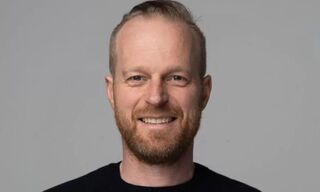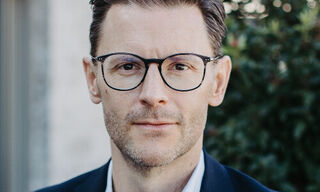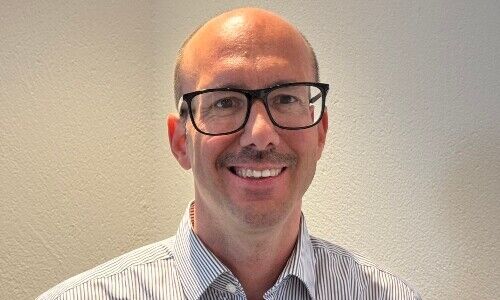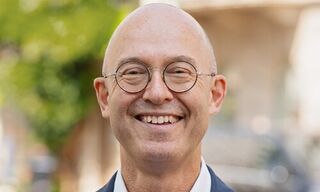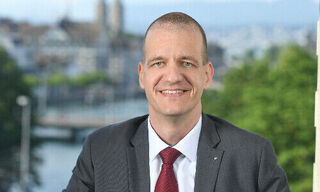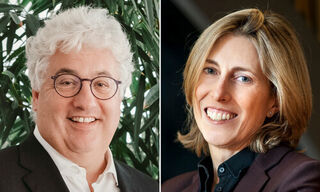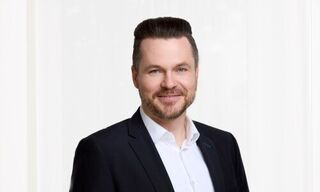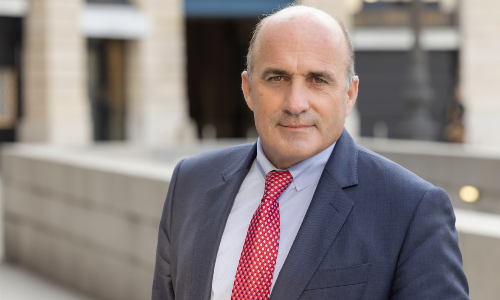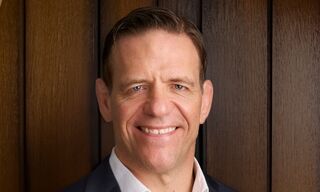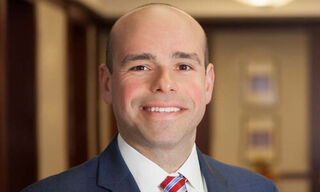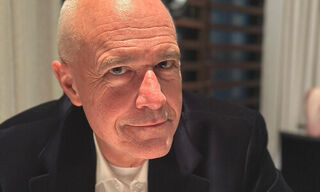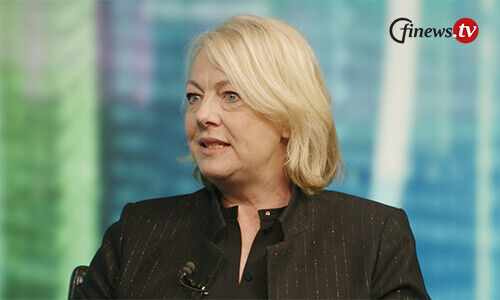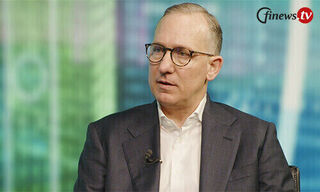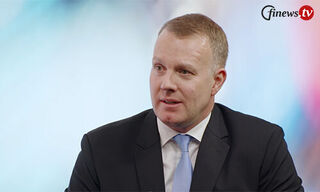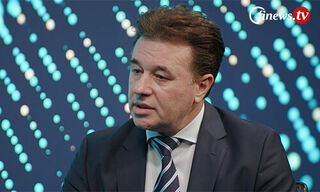1. Gold-Konferenz: Referat von Tony Deden
Auf vielfachen Wunsch publizieren wir «Reflections on the Role of Gold in Investment Practice», Referat gehalten am 17. November 2009 in Zürich.
Ladies and Gentlemen,
 Despite of what the program says, I do not see myself as an expert. This is why I have added the word «Reflections» to the title. What I will share with you in the next twenty minutes are merely my own ideas on the subject – each of them, in fact, significant enough to demand far more discourse. Finally, I will also try to summarize my own recent practice with respect to gold and the reasoning that it entails.
Despite of what the program says, I do not see myself as an expert. This is why I have added the word «Reflections» to the title. What I will share with you in the next twenty minutes are merely my own ideas on the subject – each of them, in fact, significant enough to demand far more discourse. Finally, I will also try to summarize my own recent practice with respect to gold and the reasoning that it entails.
First, let us define the terms. By the word «gold», I do not mean gold futures contracts, or a structured note, or a warrant, or a gold certificate. I do not mean gold mining stocks or most gold ETFs. By the word «gold» I mean just that – the old-fashioned kind that shines.
Secondly, let us define «investment practice». Forget the dictionary for a moment. In a city like Zurich, you have bankers, private bankers, asset managers, wealth managers, fund managers, portfolio managers, and the assorted variety of investment types. They are all investors. For the purposes of this talk, let us put them into two broad categories:
- Those who work with other people’s money, savings, pensions and are obsessed with the idea of achieving results, money and fame on the basis of how markets do, others do or what the expectations of their customers are.
- Those who look after money and capital that belongs to people they love (i.e. themselves, a father, an uncle, a grandmother, an old neighbor and so on) and who can not afford to lose it. These people are responsible for irreplaceable money.
On the surface, the jobs sound similar. But this is where the similarities end. If you are in the first category, most of my talk tonight may seem trivial and perhaps even irrelevant. If you are in the second category, welcome home.
«What matters is not securities prices, but what your 1975 savings can purchase in today’s world.»
For the last 25 years, I have found myself in the second category of investors and have focused exclusively in a rather unpopular segment: Capital preservation. For some of the audience here, capital preservation means low correlation to market. For others, it may mean bonds and other fixed income instruments. For others it may mean cash under the mattress. And yet for others it may mean gold in the vault. All of the answers are wrong.
Unfortunately, it is not so simple.
Suppose you were a successful businessman who sold his business in 1975 for 2 million francs. Or suppose you were just a simple man who managed to save (yes, save) some of his earnings, on retirement, in 1975, say 100’000 francs. Both of these sums were quite substantial back then. What matters is not securities prices, but what your 1975 savings can purchase in today’s world. Nearly 35 years later, in Swiss franc terms, you must have more than doubled your savings just to keep pace with the prices at Migros. In the end, what matters is the preservation of such capital – in the minimum.
These two imaginary men are witnesses to the fact that the job of capital preservation has nothing to do with alpha or beta or correlations or modern risk management. After all, we do not measure our health on the basis of an index of the collective health of others, but on an absolute basis. Absolute means – purchasing power. But what is absolute? We all end up measuring results in terms of a changing – depreciating money unit. There was a time when our man would put his savings in a bank and could count on the interest he received to meet his needs in retirement. But that was when money had substance. And it was a long time ago.
«I see my job in capital preservation much differently than you would imagine.»
In capital preservation, the problem we face is that we own a fixed amount of money capital – while the central bank produces, at virtually no cost, increasing amounts of the same thing, and in so doing, it reduces the value of what we have saved. On a compounded basis, after only a short period of time, we become impoverished.
I see my job in capital preservation much differently than you would imagine. You may be surprised to know that in 25 years of practice, in different times and for different reasons, I have been a value investor, a fixed income investor, a contrarian, a growth investor, a cash investor, top-down, bottom-up and so on. Starting only in 1998, very slowly, I have also employed gold and gold components in my portfolio, for reasons I will explain in a few moments. What seems to be lack of focus, or perhaps «style drift», is nothing more than a result of the absolute necessity in adapting to the changing circumstances that define both opportunities and risks – those known, those unknown, as well as the risks that come from not knowing what we do not know.
So far, in money terms, I have been more than successful in the pursuit of this mandate and have accomplished the goal to which I have aimed. There have been long periods during which I have owned a preponderance of common stocks, other periods during which I have held as much as 90% of assets in cash, yet others during which I have bought all the long-term government bonds I could, and finally, other periods during which I have held gold. I have accomplished the goal of capital preservation by owning at different times, some lengthy and some short, such diverse assets, as oil royalties, shares in Swatch, Straumann, Microsoft and so on, government bonds, and gold.
«Knowing that the source of all wealth is entrepreneurial activity.»
Starting with the elementary idea of scarcity and choice – and knowing that the source of all wealth is entrepreneurial activity, the general principle of my pursuit has been motivated by an understanding of value. I do not mean value in the sense of a lower P/E ratio or some Graham & Dodd formula or other comparative measure, even if all such notions are helpful. I describe value in its proper definition of being subjective and subject to personal interpretation. Overall, in so doing, I have sought to avoid large errors and have sought to identify significant trends. I have also sought to avoid the considerable errors that are generated by looking at prices rather than causes as a determining factor.
Let me explain – if the money price of an asset rises or falls substantially, one is tempted to look at this price and rationalize it in terms of where the price used to be, where other similar prices may be and so on. But that is really inadequate and misleading. The presence of a «bubble» or a bargain cannot be concluded until one understands the factors that have contributed in the rise or fall of prices.
So, if uncertainty is part of life and since we cannot forecast the future, how are we to be successful over a long period of time? In my view, we need two important possessions: firstly, the agility of an entrepreneur in avoiding errors that would put him out of business, while embracing opportunism and the understanding of value. Moreover, we also need certain intellectual ingredients – considerable knowledge, interest, wisdom and learning on four topics:
1. The nature of money – its history, its significance in financial and economic matters and its role in investment issues.
2. The nature of wealth and capital – how it is generated, how it is destroyed, what risks it confronts and how to value it – subjectively but deliberately. For example, I do not believe that wealth is made in the stock market—which, at best, is a reflection of wealth – and generally, prices of common stocks, like money, are also a function of confidence rather than inherent value. The standard of living of a nation or a family does not depend on the quantity of money, but on the productive capital it possesses.
3. The nature of business cycles – in solid economic theory that makes sense and passes the smell-test of history. I speak of theory as in the Austrian School theory in contrast to the gobbledygook – the confidence cum consumption game that passes for mainstream economics today.
4. Finally, knowledge of oneself is a critical subject as well.
«There is nothing magic about gold.»
Armed with such understanding, an intelligent person is able to make a start in looking after such irreplaceable money.
There is nothing magic about gold. In and of itself, it has no value. There is no one in history that made a fortune by investing in it. Its history is a matter of public record. Up until 15 August 1971, the price of gold was irrelevant for investment purposes. Then came this 10-year period that brought this extraordinary rise—from $35 per ounce to a record of $850 – only to be followed by a brutal 20-year decline from $850 to $257 in 2001. For 20 years, it was the world’s most rotten investment idea. Silver was even worse: It went from $50 to $4 per ounce. And yet, all this while a steady monetary inflation pushed consumer prices in dollar terms by 100%. Contemplate this for a moment.
Instead of looking at an ounce of gold in money price – start thinking in terms of the value of money you hold. This is not about gold, but about money. And this is a simple observation that is impossibly difficult to understand. We live in a world where money defines everything – it is hardly possible to ask ourselves: What is our money worth?
Despite a long rise in price since 2001, gold is actually quite unknown, misunderstood and feared. From the pension fund consultant and trustee to the man on the street, gold remains a relic of a bygone era. The rise of the finance economy in the last 30 years, the inflationary impact on asset prices that have masqueraded as capital gains and the general intellectual impoverishment of modern man have all contributed to our society having lost the skills we once had in detecting the devices and schemes designed to defraud – fraud and theft being the very evil nature of central banking.
«I saw gold ownership increasingly as insurance rather than as an investment.»
In my own practice, since 1998, the role of gold in portfolio construction has taken different forms.
Between 1998 and 2001 – I came to conclude that it was mispriced and that the capital of those companies engaged in the sector was also wildly mispriced. I saw it at that time as either an enormous bargain of gigantic proportions, or as a business about to go extinct. I bet on the former. And so, for the years 1998 to 2001, I viewed gold purely as an investment.
The situation continued to change. Over the ensuing years, in the aftermath of the great Greenspan liquidity of the Y2K scam and the momentous money creation that followed 9/11, it became clear that
- (a) the dollar, as a reserve currency would eventually have to be re-examined,
- (b) the financial situation in the US would deteriorate rapidly,
- (c) the gap between mine supply and traditional demand was growing and
- (d) central banks had become large speculators in the gold markets via the leasing mechanism.
It was only appropriate to re-consider my ownership in gold, not merely as an investment, but also as an insurance policy against a monetary collapse, a crisis in the payment system or a geopolitical conflict. I saw gold ownership increasingly as insurance rather than as an investment.
This continued until more recent times. On reflection, it became evident that a global currency debasement was being orchestrated – in fact, one of unprecedented magnitude and scope. I became convinced that governments would not allow a free market solution to the crisis (i.e. a cleansing), but would pursue what is politically expedient. Further additions to our portfolio coupled with the need to maintain large cash balances, were the basis for a completely new view. I now view gold not merely as insurance, but indeed as cash substitute. More than 45% of our net assets are in precious metals. Holding paper cash subjects me to credit risk, counterparty risk, foreign exchange risk, political and inflation risk. I can avoid most, if not all these, by substituting with gold. It simply means that I trust nominal money less and less.
«Can you point me to any honest money anywhere in the world?»
We are being told that gold is not a productive resource and has no industrial use. What a brilliant thought. I agree, of course. But how much greater is really the economic value of holding government bonds or cash? Or, what sort of industrial uses can be made out of treasury bills? Or structured products?
We are also told that gold is merely a great hedge against a lower dollar. It is true, but not completely. Can you point me to any honest money anywhere in the world? It escapes the superficial observer, but gold is, without doubt, a hedge against the real risk – perhaps a certainty – that none of our ancestors would even imagine – a monetary system at the brink of collapse.
There is much to read about the correlation of gold with commodities indices, oil and so forth. These comparisons may result in clues, but not in wisdom. Yes, when the Chinese money bubble finally breaks, as it will, all hell will break loose for commodities and even for gold. The dollar will rise. But just ask yourself «then what?» and «for how long?».
Finally, there is this common advice that «for insurance purposes, a 5% to 10% exposure to gold would be sufficient». Firstly, these back-of-the-napkin asset allocation models are complete bunk. Secondly, if we are indeed to speak of insurance, prior to making a deal with the insurer, we have to assess the risk. So, what sort of risks are we speaking of? Earlier, I gave you my own list of such risks. None of which seems even close to solution.
«If cheaper currency is the source of wealth, where has Bangladesh gone wrong?»
The price of this metal in money prices has outperformed all other classes for many years in a row. It is understandable that people would want to explain it in hindsight, and it is also quite reasonable among honest men to have differences of opinion. But by asking about gold in terms of price, we miss the greater lesson to be learned in this whole period of crisis.
Frankly, we now have two generations of economic agents who are entirely ignorant about the nature of money. We welcome rising prices and see them as wealth even as they are merely the result of inflation. We demand more cash to save the system, instead of allowing those who fail to go bankrupt, so that more efficient competitors can emerge. We have tolerated the Swiss National Bank sale of our gold reserves in exchange for American paper money and promises.
We demand cheaper currency to stay competitive because we do not know the true nature of competitiveness. If cheaper currency is the source of wealth, where has Bangladesh gone wrong? If cheaper money means economic prosperity, why not just print as much as we can and give it out to everyone? We have become fools. The customers know nothing and the advisers know even less. And then we have the idiot economists—the neo-classical, Keynesian variety with solutions to problems they did not even anticipate; solutions that have, in fact, long been discredited. And so we lurch from crisis to crisis—eating our meager capital in the hopes of becoming rich in money. It’s a pity.
«I see gold as a tool in the same manner I see common stocks, bonds, or just any other type of asset.»
To be an investor in our times without an understanding of history, classic economic theory or the common sense of our grandfathers is a recipe for disaster. And there is more disaster to come.
Here is my summary: In pursuing my goals in capital preservation, I am interested in tangible assets – not promises, not claims, not contracts, not confidence and not hope. I will continue to pursue wealth creation by participating in the capital of the few remaining outstanding entrepreneurs. And I will continue holding cash for a while, expecting to find opportunities to use the latter to purchase more of the former. I do not really trust the money issued by governments. And so, I see gold as a tool in the same manner I see common stocks, bonds, or just any other type of asset.
Let me be very blunt: the discovery of value and/or wise speculation becomes extremely difficult, if not impossible, in an irrational and dysfunctional economic system.
And so, at different times, for different reasons, in different amounts and for different purposes, none of which are suited for a simple explanation or a model—I seek to have such a mixture so as to pursue a noble cause in the economic life of those I serve—capital owners and savers—that of seeking to protect their savings from the rent-seekers, the fools, thieves and assorted charlatans that clutter our world.
Thank you.
A speech from the 1st Gold Conference in Zurich, presented by finews.ch
 Tony Deden, born 1957 in Athens, Greece, was educated in Mathematics and Chemistry, University of California but has remained a lifelong student of history, economics and political economy.
Tony Deden, born 1957 in Athens, Greece, was educated in Mathematics and Chemistry, University of California but has remained a lifelong student of history, economics and political economy.
Since 1985, at the age of 28, he has been in private practice as investment counselor to families, and since 2001, the manager of Bermuda-registered Edelweiss Fund whose intellectual and practical purpose is the preservation of capital and whose record of total return since inception is at the 99,6th percentile of all unleveraged and diversified investment companies. He serves as Chairman and Chief Investment Officer of Sage Capital Zürich.





















